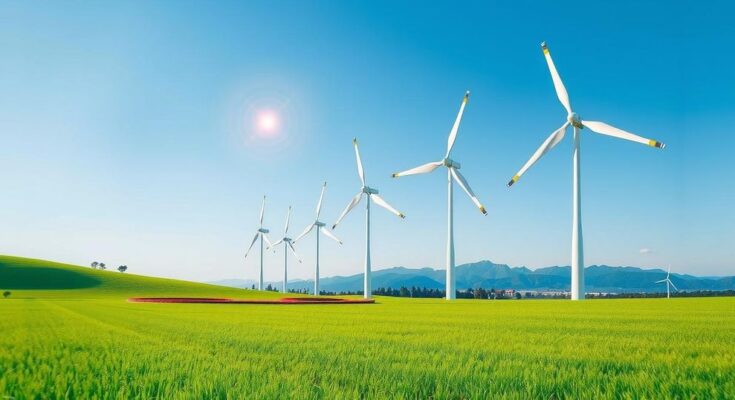Taiwan aims to attract over $1.5 billion in insurance fund investments to finance its green energy transition and meet ambitious climate goals. Environment Minister Peng Chi-ming announced plans for energy service companies (ESCOs) to channel funds in two phases. The island’s shift from coal and investment in renewables responds to increasing climate challenges, including severe weather events and droughts in recent years.
Taiwan is seeking to secure over $1.5 billion in investments from insurance funds to support its transition to green energy, as stated by Environment Minister Peng Chi-ming. This initiative is aligned with the island’s climate change and carbon reduction efforts. Despite most countries missing the U.N. deadline for setting new climate targets, Taiwan is keen to demonstrate its commitment to addressing climate issues responsibly.
Notably, Taiwan is not a U.N. member due to China’s opposition, which considers the island part of its territory, and as such, Taiwan has not signed the Paris climate agreement. Recently, President Lai Ching-te announced a more ambitious goal to reduce greenhouse gas emissions by 26% to 30% by 2030, an increase from the prior target of 23% to 25%.
Minister Peng highlighted that Energy Service Companies (ESCOs), which facilitate financing for energy-saving projects, are viewed as a compelling investment opportunity. A collaborative working group comprised of the environment ministry, the economy ministry, and the Financial Supervisory Commission is focusing on channeling insurance funds into ESCOs. Initial investment is projected at T$10 billion (approximately $304.92 million), escalating to T$50 billion (around $1.52 billion) in subsequent phases.
Taiwan is transitioning away from coal-fired power stations in favor of liquefied natural gas and is also investing in renewable projects such as solar and wind energy. Minister Peng indicated that Taiwan faces increased climate challenges, including severe heat waves, intensified typhoons, and more frequent droughts, necessitating proactive climate measures. The record high temperatures in 2024 and the severe drought experienced in 2021 underscore these vulnerabilities.
Minister Peng remarked, “For countries at our latitude, drought is a real danger. Although we have sufficient resilience to deal with it at the moment, we can’t rule out even more extreme situations won’t happen.”
Taiwan’s proactive approach to securing investments from insurance funds for green energy initiatives demonstrates the island’s commitment to addressing climate change, despite its lack of U.N. membership. The ambitious emissions reduction targets set by President Lai, coupled with the investment in ESCOs, signify a robust strategy to enhance environmental resilience in the face of mounting climate challenges.
Original Source: wmbdradio.com




